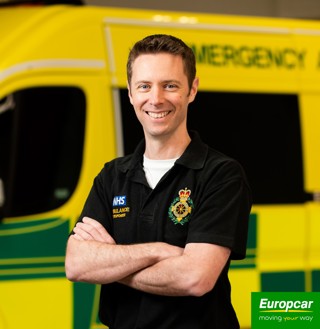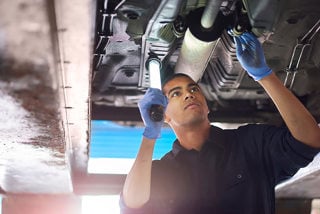Healthcare transport provider the HATS Group is installing clean air technology in 100 vehicles used to transport patients, to reduce the risk of essential workers being exposed to the Coronavirus.
The AirBubbl air filtration system is supplied by AirLabs and can remove more than 95% of harmful particles that pass through the filter.
By installing air filtration devices and a suite of other measures in their patient transportation vehicles, HATS is seeking to minimise the risk of exposure to the virus for staff who will come into close contact with infected patients in confined spaces.
Ashley Stowell, advanced paramedic practitioner and clinical director for HATS, said: “We originally decided to install air filtration to protect our patients and our crews from London’s air pollution, as part of our ongoing commitment to the health and wellbeing of our staff. As the pandemic hit, it quickly became apparent that we could repurpose our vehicles to help transport patients infected by SARS-CoV-2.
“In order to do this we decided to ramp up installation, along with the rapid deployment of extra vehicles for a number of additional services, including ITU transfers of COVID-19 patients and maternity services to a number of Hospital Trusts across London, in a bid to help reduce the cross infection on this mountain we are all having to climb.”
Coronaviruses including SARS-CoV-2 are spread via respiratory droplets produced by infected persons when they cough, sneeze, talk or breathe. While larger droplets quickly fall out of the air, smaller droplets persist as aerosols. These aerosols provide an environment in which viruses can remain alive for hours allowing them to spread through the environment, according to recent studies from MIT and the New England Journal of Medicine. Droplets and bioaerosols also lead to the contamination of surfaces, another route of transmission.
Studies show that the amount of exposure is linked to the incidence and severity of viral disease, and ventilation is commonly used by hospitals to dilute and control airborne pathogens. By using air filtration in an enclosed space and reducing the airborne virus load, there is a potential to reduce transmission of SARS-CoV-2 where people are in close proximity, such as ambulances, patient transport and other service vehicles.
Matthew Johnson, professor of chemistry at University of Copenhagen and chief science officer at AirLabs, said: “Our focus here is on reducing exposure for workers who cannot avoid close contact with coronavirus patients, and for anyone working in essential jobs in enclosed spaces.
“The science shows that by installing air filtration devices in vehicles, it is possible to remove more than 95% of airborne particles. By decreasing the concentration of airborne particles that could contain the virus being breathed in by workers in critical environments, we reduce the risk of them being infected.”





















Login to comment
Comments
No comments have been made yet.